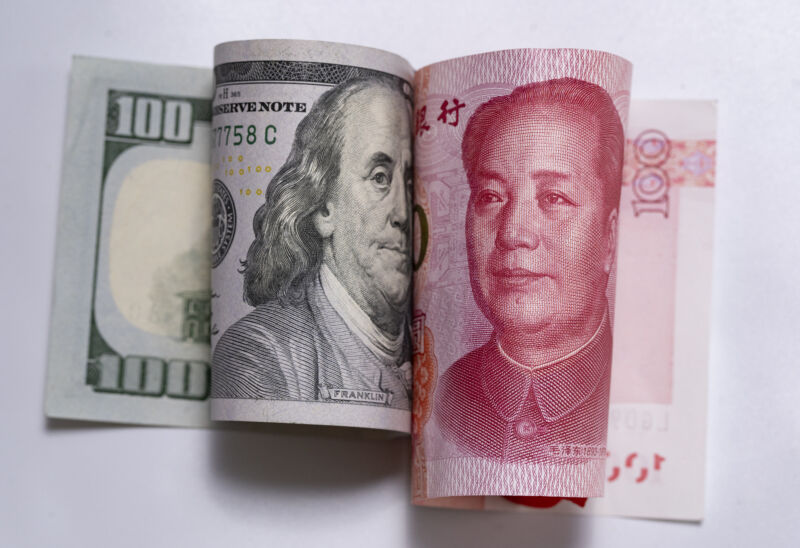
Getty Images
The ongoing dispute between the United States and China over electric vehicles shows no sign of abating. Today, Reuters reports that China has asked the World Trade Organization to set up a special panel to determine if US EV subsidies are an unfair trade barrier.
The Inflation Reduction Act of 2022 has been the most significant climate legislation in US history, with hundreds of billions of dollars of funding for the clean energy transition. Among its many details, it revamped the federal tax credit for buying a new electric vehicle.
In the past, a credit of up to $7,500 was tied to a plug-in vehicle’s battery capacity. But it’s now tied to where the car and its batteries were assembled, as well as where the battery minerals come from. Final assembly of the vehicle must be in North America, for example, and ever-increasing amounts of the battery pack’s content and value must come from North America or a country with which the US has a free trade agreement.
Even more troubling for Chinese automakers is a rule from the US Treasury Department that prohibits tax subsidies for vehicles manufactured by companies linked to “foreign entities of concern,” a category that includes Russia, North Korea, Iran, and China.
The measures were included in tax credit rules after extensive lobbying from automakers and unions in the US and politicians from both sides of the aisle. Pressure from the automotive industry also succeeded in getting the Mexican government to promise not to subsidize new Chinese EV factories south of the US border.
In May, US President Joe Biden levied a new 100 percent tariff targeted at specific Chinese imports, including EVs. In Europe, similar fears over the impact of heavily subsidized Chinese EVs on domestic car production saw the EU raise new tariffs of up to 37.6 percent on Chinese-made EVs, despite objections from the German auto industry.
China’s action at the WTO actually predates the new US EV tariffs—it first went to the trade organization in March, arguing that the US tax credits hinder fair competition and break existing WTO agreements.
China’s commerce ministry told Reuters that protectionist EV subsidies from the US “undermine international cooperation on climate change.”












